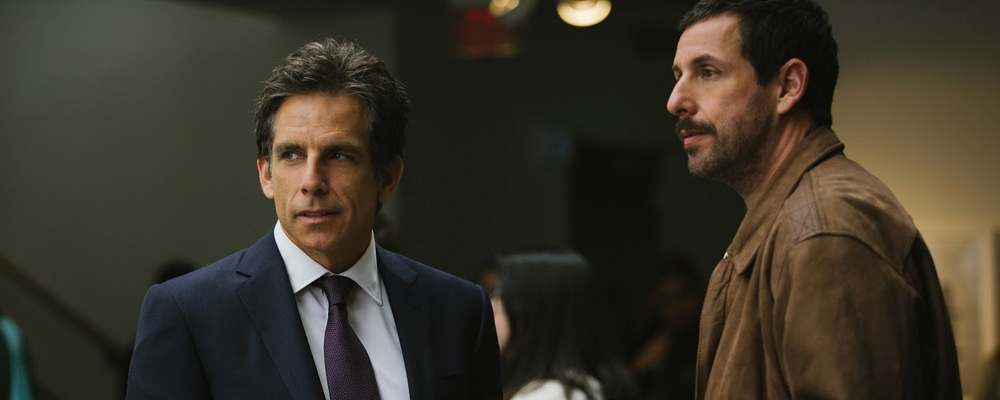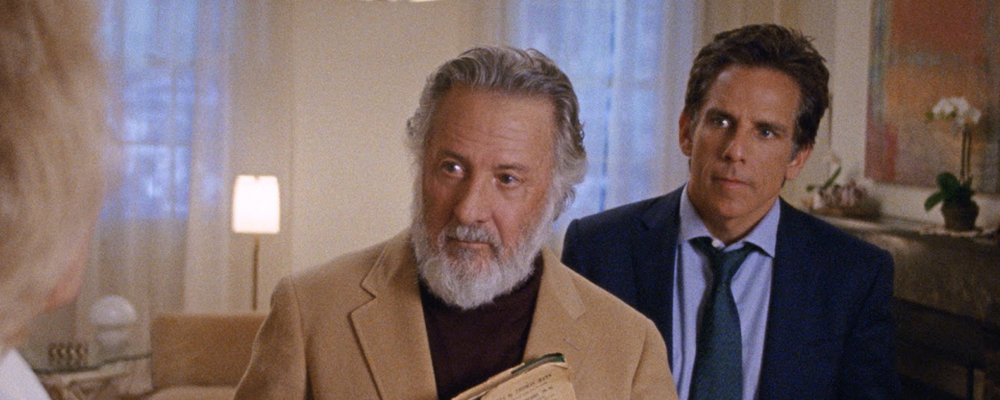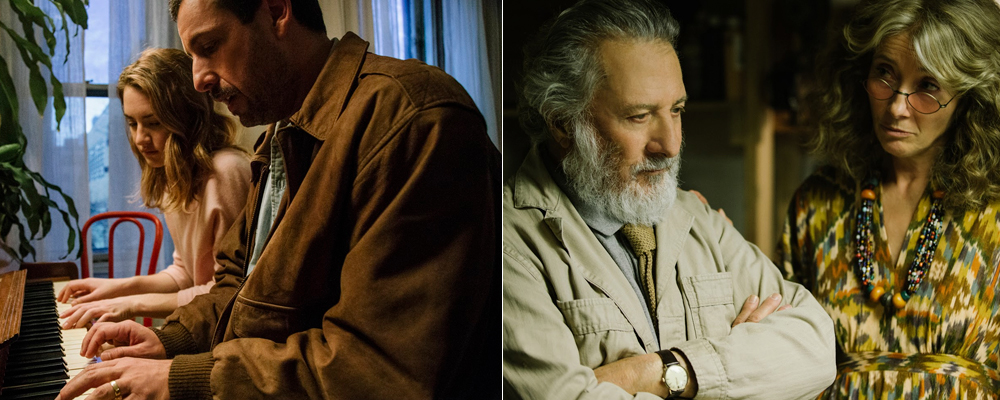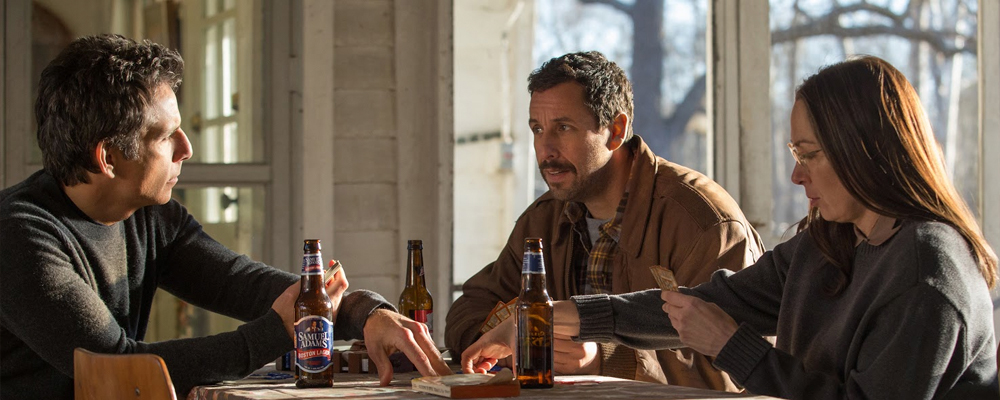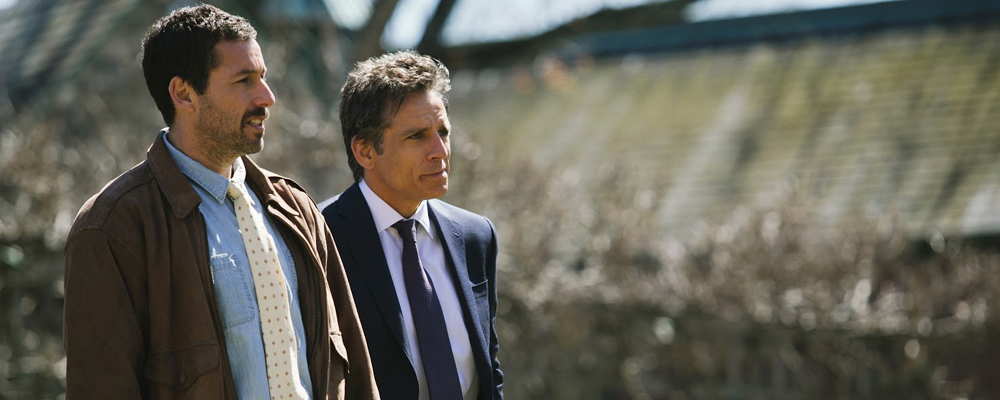‘The Meyerowitz Stories’ Is a Charming Anthology of Dysfunction
Alci Rengifo
The scars of quirky parenting and those hidden, boiling feelings between siblings forms the heart of “The Meyerowitz Stories (New and Selected),” a charming and nostalgic new drama by Noah Baumbach. It is the latest dramatic offering from Netflix as the studio continues to expand in the production of original content. A bit more on the low budget side of the studio’s roster, the film thrives on its engaging performances which find a nice balance between reflection and comedy. In the tradition of films like “Rachel Getting Married,” but with a lighter heart, Baumbach has made a movie that feels like a hilariously melancholic family reunion.
The film tells the microcosmic saga of the Meyerowitz clan, an intergenerational New York family living under the offbeat shadow of Harold Meyerowitz (Dustin Hoffman) an aged sculptor who was never given his proper dues as a respected artist. His own children are now grown and are slowly returning to the nest as Harold grows convalescent. There’s Danny (Adam Sandler), a sort of hanger on who never truly found independence but struggles to raise his daughter Eliza (Grace Van Patten), Matthew (Ben Stiller), a successful businessman who tries to mask his emotional scarring with his wealth, and Jean (Elizabeth Marvel), the half-sister of the brothers. The siblings now find themselves dealing with the legacy of their father’s clueless- sometimes detached- legacy and their own collective resentments, insecurities and silent regrets.
Baumbach has always been a director capable of taking characters that vibrate with an authenticity that reveals the casual humor of daily life. His “Frances Ha,” about a 30-something trying to finally live an adult life, was a real charmer and here he goes further with a film of deep wounds and warm sensibilities. His visual style is sparse because what matters here are the personalities paraded on screen. Dustin Hoffman is serene aloofness as Harold, speaking in an elegant language that can seem hilariously out of place. In one scene, after visiting one of his ex-wives (played luminously by Candice Bergen) he utters observations such as,“her fraudulent denial of reading fiction,” and proclaiming, “no wonder we have a Republican Congress.” He’s the kind of senior who might seem to be senile, but in reality his habits are simply growing more obnoxious with old age. Harold drags Danny to a Museum of Modern Art even, insisting they wear tuxedos only to discover the dress code is casual, he spends his time watching TCM or movies on VHS and makes it clear that he was never fueled by the ambition to make profit. Hoffman brings to life the quintessential absent-minded parent. He was loving but dysfunctional.
The key performances are by Adam Sandler and Ben Stiller, who play to their strengths and reveal dimensions we rarely see in their films. Sandler in particular is a revelation. This is his best performance since his role in Paul Thomas Anderson’s “Punch-Drunk Love.” Danny is a man crippled by his upbringing and cursed by a hidden bad temper that can be triggered by any small incident. Sandler swerves from sweet to frustrated rage. He brilliantly brings to life a character who knows he never did much because of the example set by his father, but he can’t do much other than just go forward. But he’s also wonderfully funny when faced with life’s hurtles, such as discovering that his 18-year-old daughter is handling a beer and wine combo quite well on campus.
Stiller is also memorable as Matthew. He embodies the character so well it’s easy to forget the Zoolander persona and buy him as a man with means, but who hasn’t overcome the need to prove himself to his brilliant, but undiscovered father. Yet he still manages to lighten up with the mood with some of his trademark style, especially in one great scene where Harold is convinced a French tourist at a restaurant has mistakenly taken his jacket. In another great scene Danny and Matthew get into a public argument that spirals into a tussle on the floor, and both actors demonstrate why they are so entertainingly good.
Baumbach abandons any kind of formal plot with “The Meyerowitz Stories (New and Selected).” Instead he focuses on moods and themes. His screenplay is about regrets and unspoken frustrations within a middle class family. But it’s never depressing and has a wonderful energy as we go from moment to moment. Randy Newman’s music score is wistful but tender. It’s the kind of film where debating how to sell the family home can provoke deep confessions and where a trip to the hospital can result in sudden, unexpected ways of bonding (like smashing a car with rocks). We are carried along by these people as they seek to sort out their relationships to each other. In the process they become likeable because there’s a little something in each of them that’s relatable to any viewer. “The Meyerowitz Stories (New and Selected)” seems to say none of us is perfect, but many of us have been condemned to actually have to deal with our parents.
“The Meyerowitz Stories (New and Selected)” releases on Netflix and in select theaters Oct. 13.

